
Here's what the reality of being bi looks like
The wild misconceptions about being bisexual in India, straight from those who live it.

I first realised I was bisexual when I was 25. It came after years of confusion, dismissal, and denial. It felt so easy to live with the veneer of straightness. I did, after all, like men. I did, after all, like them more—or rather, was more attracted to them, even though I’ve always preferred women as people (but doesn’t everyone?). But when I did eventually come out, several years later, reactions were mixed. There was an inordinate amount of acceptance and kindness—I was lucky that way.
It wasn’t all rosy, though. I was asked, often, if I was “sure”—I had been with the same man for over a decade, how could I be confident? Boundaries were crossed by men, assumptions made that I was jonesing for a threesome. It was waved away by straight friends, who assured me “phases were natural” and “we’ve all kissed a girl in college—or at least wanted to try.” And, worst of all, women friends began to wonder if I had been in love with them all along
But the more I sought out other bisexuals (especially women), the more I found how universal this experience seemed to be. The same sense of trying to straight-pass, the same feeling of unbelonging, the same trivialisation of your identity as a mere moment in your timeline... In this story, I speak to seven such women about the shared experiences of being bisexual in India—and how, no matter our differences, our roads will always converge.

“Want to have a threesome?”
Haritha Prakash, 33
As an attractive, bisexual woman with a past of dating men, Prakash has been asked this question far too many times. “This was a legitimate bone of contention in my last relationship,” she tells me. “My (then) boyfriend first went through this whole phase of denial, quickly followed by insecurity—and eventually, putting immense pressure on me for us to have threesomes. The last bit happens a little too often, in my experience.” It comes with the problematic assumption that she’s “mostly straight” with women being a sexual side salad, primarily because she’d dated more men than women in the past. “Dating someone of the opposite sex often leads people to assume I’m straight. I’ve had people go ‘But you aren’t exactly bi, though, because you mostly date men’.”
The same assumption has led to the famously dismissive “phase” comment; and a part of her identity that gets glossed over. “There are several people in my life (read: family) that just refuse to acknowledge this part of me,” she adds. “I’m often asked if I’m just still unsure about my preferences, or told that I’m still apparently figuring it out. It’s also called ‘experimenting’, there’s a lot of that word thrown around.” Seeing that “experimentation” as a free pass for threesomes has come up far more often than Prakash cares for.
“I don’t belong here.”
Gina Lucia, 32
When Lucia went to a gay bar with some of her friends, someone from the extended circle asked them why she was there. “They said I didn’t belong there because I was a girl; a straight one, they assumed,” Lucia says. “They had to explain to him that I’m gay as well, and it caused a lot of drama. Even when I’ve had relationships with men, people have decided I must be straight; or just bi-curious and flexible.”
The “confusion” declaration isn’t just something that comes from heteronormative people; queer folks are often just as dismissive, if not more. “Most people have a binary view of sexuality (straight or gay/lesbian). They struggle to understand that someone can be attracted to more than one gender. This can lead them to question if bisexual people are just ‘confused’ or ‘experimenting’.” In her experience, it has also meant that people mistakenly believe that bisexual people are more likely to cheat, or are more “promiscuous” because they are attracted to multiple genders. “This misconception can cause people to question the stability or seriousness of a bisexual person’s relationships.”
It can also, as many bi women are afraid of, affect the way women see us. “One of my good friends behaved very differently towards me after I came out to her, and was more distant. We had a very close relationship, and she couldn’t deal with it. She judged me for not saying anything for so long.” Friends might become wary, and so might potential partners. “One lesbian girl stopped talking to me when she found out I was bi and told me I was a fake lesbian and she wasn’t interested in me if I was into men as well.”

“You’re not bi enough.”
Saundarya Srinavas, 33
“I came out to myself in 2018,” Srinavas tells me, adding that it had been quite the emotional rollercoaster up until that point, as it is for many bisexuals. “I didn’t have too many queer friends or people I knew that were allies back then. So, I decided to share it with a work friend who I knew was also bisexual.” Unfortunately for Srinavas, she decided to share it in front of another colleague, who said, without pausing, “So? You’ve only made out with one girl, that doesn’t make you bi.” “My friend looked shocked, and I felt like I was slapped across the face.”
It isn’t out of the ordinary for bi women to have to back up the “claim” with lived proof—or ascribing to a certain set of tropes. “I’m constantly made to feel ‘not queer enough’,” Srinivas adds. “Apparently, there’s a ‘bi aesthetic’ that I’m supposed to follow, because otherwise, I come across as a ‘straight girl’ who is queer-baiting queer women. Also, I still haven’t dated another queer person, so apparently that makes me ‘less queer’.”
The other thing that grinds Srinavas’ gears? Being told bisexuality is “in vogue”. “Cis-het people do this a lot,” they tell me, eyes rolling. “Just a couple of months ago, I told this friend about a date I’d been on with a man and how different it was from when I went on dates with women. She responded by saying, “But you’ve always been with boys, so how can you still be bi when you’re dating a man? Don’t jump on trends.”
“But you’re monogamous and married to a man…?”
Anjika Prashar, 31

Prashar is incredibly aware of her privilege. As a primarily “high femme” (“but not always,” she clarifies) woman who is married to a straight man, Prashar makes no bones about how being “straight-passing” allows her the luxury of navigating the world more easily than a queer man, or a lesbian. “I’m not in denial about the fact that I am a bit of a girly girl. I do like my hair long. I do like to wear dresses. I won’t wear a pair of heels, but I can in a pinch. And I don’t mind being a pretty girl.” Her queer friends might give her a touch of grief about it, telling her she “doesn’t look bisexual, nothing about me says that.” “I mean, also, I’m married to a straight man, and I’m monogamous—so I completely see that privilege of looking feminine and heterosexual and having that relationship grant me that privilege.”
It’s afforded her a pass from the straight people she knows, who she insists might be free to think whatever they like, but are always “kind and polite, not making their opinions her problem.” “There have been microabrasions I have dealt with, sure. But overall, I do not face the world the same way as I would in a relationship with a woman. I am bisexual, but I’m not a soapbox about it. I don’t feel like I have to be—what business is it of an aunty or a relative who I’m attracted to?” To her, bisexuality in itself is a label that deserves freedom of movement, the ability to change and grow with time. “It’s a label that’s useful from the POV of finding a like-minded community—I created a Clubhouse group for bi girls in the pandemic that grew to have hundreds of members that found solace in the shared experience of being bisexual. But bisexuality shouldn’t box us into certain sets of experiences.”
“Do you just date women till you settle down with a man?”
Anagha “Anu” P, 35
A person Anagha met at a queer event actively asked her out on a date but turned unforthcoming when she mentioned she was bisexual. “On probing further, she shared her experience dating bisexuals who broke up with her because they decided to get into a conventional marriage and lead a normative life,” Anagha says. “She also gave examples of this happening to other queer women in her circle. I empathised with her, but I also tasted the discrimination against bisexuals.” It was a discrimination she has encountered a fair bit before (“but not anymore. I have been candidly queer and polyamorous for a long time now”), but she doesn’t think of herself as ever “having been in the closet.”
“Whenever my attraction to someone was reciprocated, irrespective of their gender, we explored that connection. The people around me were part of that journey in varying capacities. They were also understanding if not supportive of it.”
Anagha is a firm believer that coming into your own, the desire to prove yourself lessens; and you begin to care less about how you’re perceived by either the queer or straight community. “10-13 years ago, when I was new to the city, I was made to feel like I wasn’t queer enough by the queer community. There was an intangible pressure to prove it, especially to older queer folks. But things have changed considerably since then.” Straight people, too, made it feel like a comfortable setting to slide in and out of. “Two years ago, a straight person casually mentioned how I have ‘the option to have fun’ with women while also conforming to societal expectations. That not only reduced bisexuality to binary but also alluded that bisexual folks are imposters in the queer community.”
“Being bi equals being chaotic”
Tejaswi Subramanian, 33
Subramanian came to an understanding of their bisexuality a few years ago, but the exploration went beyond that. Giving themselves the freedom to date, explore, and examine their world view and preferences led to the verdict that Subramanian was bisexual—but also asexual, non-binary, and polyamorous. It was an identity that had clarity (with ever-growing exploration, of course), but made her, in her words, “very queer”. “I’ve always felt like my bisexuality is not just about sexual attraction. It’s all forms of attraction—aesthetic attraction, romantic attraction, and partnerships. I have partnerships with a lot of people; at work, close friends of different genders with elements of partnership, which sometimes includes sharing a house. I’m also polyamorous, so I never really see myself as engaged in just one kind of partnership. I think I’m very queer in my attractions.” But that range often presents as “chaos” when Subramanian dates. “I understand that bisexual people are seen that way—it’s because of how their identity is misunderstood. For instance, this girl and I matched on a dating app and the first question that she asked me was ‘I hope you’re actually into women and not just pretending.’ I think that’s one of the most dismissive, hurtful things you could ask a bi person. For example, I don’t have to be into all women to be into women. So I felt like, if I wasn’t into her, she would have weaponised it and said, ‘I knew you were pretending to be into women’. It’s a very harmful rhetoric that somehow the chaos of bisexual people is not a result of life in this identity.” It’s also something that makes it harder for them to date women. “I struggle to date women, because a lot of them have this internalised misogyny and biphobia. They also don’t really seem to understand my gender expression and identity in a lot of nuanced ways. That’s something I wish I could change, because I do wish I could date.

“It’s not an identity, it’s a kink.”
Gurnoor Kohhli, 26
It was when she was studying in the US that Kohhli figured out she was bisexual, only to visit home soon after and have it dismissed outright. “I was called a liar, and my attraction to women was dismissed as a ‘quirky fascination’.” It’s what prompted her decision to keep her sexuality on a need-to-know basis in India. “Being told you’re only pretending to be bi so that you can have threesomes, that it’s not your sexuality but a mere fantasy I’d like to fulfill, will do that to you. It was terrible to see my identity dismissed as a kink.” Kohhli has encountered no dearth of outrageous statements as a reaction.
It’s also led to an automatic assumption of inevitable infidelity. “It’s because the concept of liking both men and women is so strange to them that it definitely doesn’t translate as real.” That is bisexual, and not biromantic (romantically only interested in men), which makes it even harder for people to digest. People challenge its validity with offensive questions like, “If you’re bi and end up marrying a man, you’re essentially straight, right?” She also talks about encountering the perception that “bisexual women are hot and bisexual men are just gay men trying to fit in.”
This article originally appeared in the January-February 2025 print edition of Cosmopolitan India.
Also read: 12 LGBTQ+ dating apps that are actually worth downloading
Also read: The legacy of Pride parades in India
more from Life
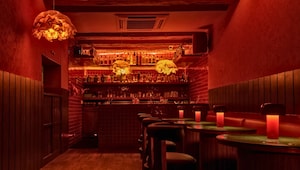
Sip, flirt, repeat: Inside New Delhi’s most discreetly delicious cocktail bar

Is 'Bridgerton' season 4 saving its juiciest drama for Part 2?
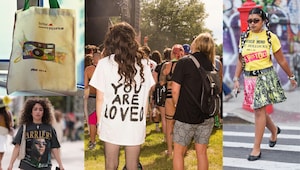
The rise of ‘I want it all’ culture and why Gen Z means it differently
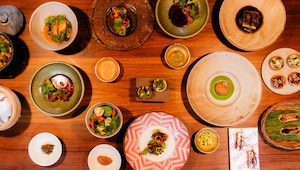
NAAR and Quintonil: Bringing a taste of Mexico to the Himalayas
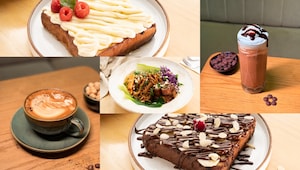
This Worli café is all about comfort, caffeine, and slow sips
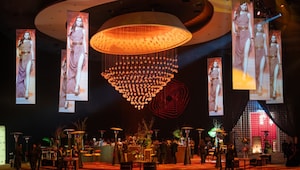
Elie Saab brings couture-inspired luxury residences to India
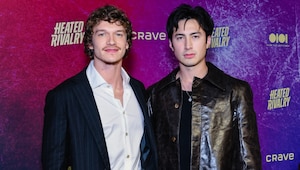
Not a drill: the plot of the third 'Game Changers' book about Ilya and Shane just dropped!
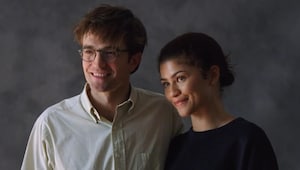
What we know about 'The Drama', the Zendaya–Robert Pattinson film that’s keeping its cards close
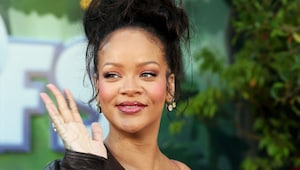
Sorry, not sorry—over-apologising is holding you back and here’s how to fix it
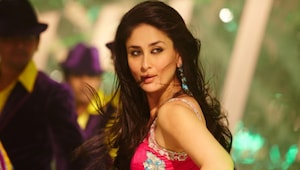
The 75 hotter fitness challenge proves you don’t need burnout to build better habits
